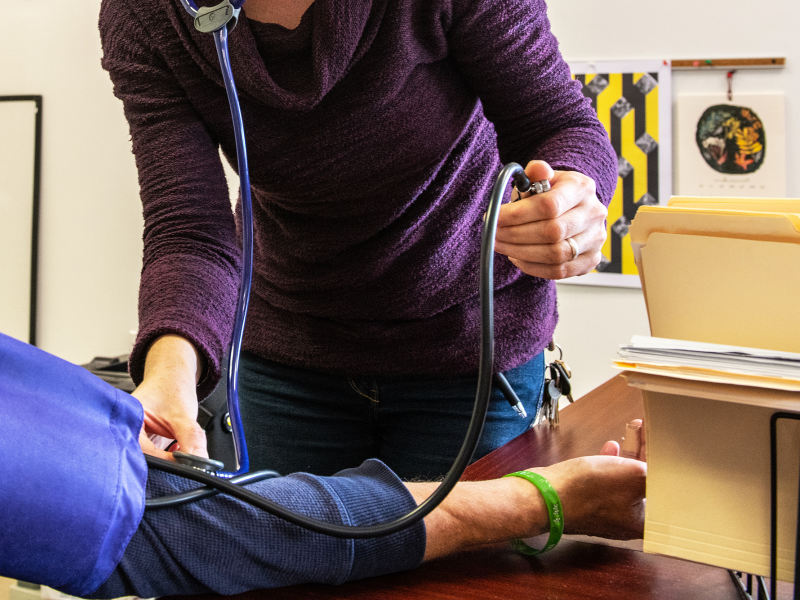Pathways Behavioral Health Specialist Guides People Through Messy Terrain of Addiction
Joe Quinn has a unique job. He is a guide, but his turf extends beyond city streets and notable landmarks into human motivation. Joe’s job is to help people navigate the bumpy road out of substance use. And like any good guide, his insights come from hard-earned personal experience.
Joe is a Behaviorial Health Specialist. His department, Community Integration (CID), helps participants rebuild their lives after homelessness and mental health challenges. “A lot of our participants have pretty much been isolated from society,” Joe explains. “A lot of them are uncomfortable getting involved in any kind of community activities because they just feel like the outcast.”
The Community Integration Department is funded largely through the donations from supporters like you, and it is integral to helping participants rebuild their lives. “I have one participant who is very into art,” Joe says, “but he never feels comfortable going any place where he can enjoy art without feeling looked down on.” So Joe scheduled some time to take him to art events around the city.
Activities like these help participants reconnect with things they love and create new routines, but Joe points out that there’s another reason they matter. “The key for what we do, especially on our team, is building relationships,” he says.
Joe’s team works with more than 70 men and women who have recent histories of both homelessness and opioid use. “One of the reasons that it’s hard for people to go to treatment is because they don’t trust anyone,” he explains. “They’ve been let down a lot in their lives. I just keep telling them ‘when you’re ready, let me know. I’ll be there for you.’”
One of Joe’s favorite parts of his job is those pivotal days when a participant calls him to tell him that they’re ready for treatment. “That is the coolest thing to me,” he says, “that someone would trust me enough to say, ‘I’m ready!’ I’ve been in their shoes. I remember the courage it takes to pick up the phone.”
While seeking treatment is an exciting first step, the truth is that it’s only a small moment in the long journey of recovery. “Once you get physically stable you are ready to start looking at some of the reasons why you became a heroin user in the first place,” Joe says. "Many of the participants he’s worked with have layers of trauma going back to their childhoods that contribute to their substance use disorders. “It’s just like an onion,” he says. “There’s layer after layer of things to work through.”
While treatment is not mandatory for Pathways participants, more than half of Joe's team is actively in treatment, and it’s a goal for many more. “Nobody wants to be a heroin user,” Joe says. “That life is miserable.” Joe knows what he’s talking about. Ten years ago he was fighting his own battle with substance use.
“I had many people help me along the way,” he says. One of Joe’s biggest supporters, Jeff, is now a teammate at Pathways. “My last time getting into detox Jeff was the one doing the intake. He was told to refer me somewhere else because I already had two brothers in his program, but he admitted me anyway.” Jeff later told Joe, “I just kept thinking about your mom. I couldn’t get her out of my head.”
Now Joe is celebrating his 9th year of being heroine-free. While he feels blessed to be clean, Joe doesn’t take it for granted. “Nobody ever masters recovery,” he says. “You don’t graduate. Working with our population is just a reminder of where I once was, a reminder of where I could be again if I don’t take care of myself and stay on top of my recovery.”
The recovery journey is a difficult one. It’s personal, painful and long. But Pathways participants are lucky. They have a guide who has been walking that journey steadily for 9 years. Whenever they want to take the next step all they need to say is “Joe-I’m ready.”
Help Pathways to Housing PA help more participants as they take the next step. Donate Today!


